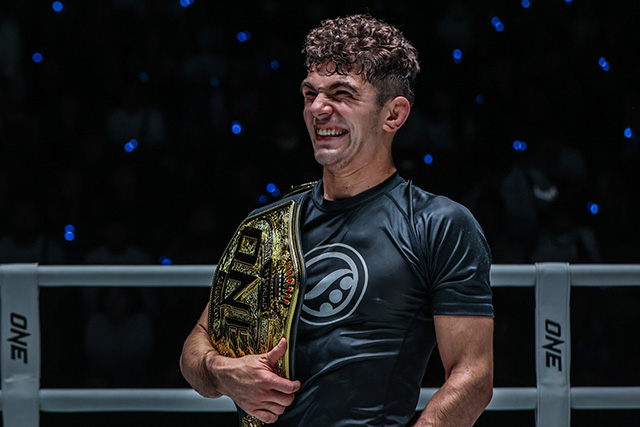The Big Picture: What’s Dehydration Got To Do With It?
Editor’s note: The views and opinions expressed below are those of the author and do not necessarily reflect the views of Sherdog.com, its affiliates and sponsors or its parent company, Evolve Media.
Advertisement
When Anthony Pettis scored an against-the-fence Superman punch knockout against Stephen Thompson in the UFC Fight Night 148 main event on Saturday in Nashville, Tennessee, there was some explaining to do.
“Wonderboy” was a heavy favorite for a reason. He has been a perennial contender in the welterweight division for the last four years. Since 2014, he knocked out current middleweight champ Robert Whittaker and former welterweight champ Johny Hendricks, while also winning dominant decisions over divisional luminaries like Rory MacDonald and Jorge Masvidal. He was painfully close to taking the belt off of then-champion Tyron Woodley -- twice. Though his previous fight against Darren Till has gone down in the record book as a loss, most people who watched it thought otherwise. Only the best of the best at 170 pounds had been able to beat Thompson, and they just narrowly edged him out on the scorecards when they did.
Former lightweight champion Pettis, on the other hand, has been
inconsistent in that same timeframe. He lost his title to kick off
a three-fight losing skid, then seesawed between wins and losses
for the next six fights, going 3-6 between 2015 and 2018. He was
finished in each of his last three losses, which up until then had
never happened before. By most accounts, it seemed as if Pettis’
time as an elite fighter had come and gone.
On top of his recent ups and downs, this was the first time Pettis had fought at welterweight in the Ultimate Fighting Championship and only the second time in his career, the first being a 2008 win against Gabe Walbridge. Yet after his stunning upset, a lot of people pointed to his divisional debut as a cause of success: He didn’t have to cut nearly as much weight as he had been cutting to get to lightweight or featherweight, and consequently, he authored a vintage performance. While that’s a reasonable conclusion to draw, it’s hard to pinpoint how much weight cuts have to do with wins and losses.
As Sherdog’s Ben Duffy wrote before the fight, there are plenty of examples of fighters who cut down to a smaller weight class and failed, as well as fighters who moved up to a larger division and succeeded. Those instances are certainly worth noting and they could very well be indicative of a cause-and-effect relationship, but as of now, they are still the outliers. Beyond that, there is no shortage of examples of smaller fighters getting bullied in the cage by opponents who physically overwhelmed them. It’s also worth noting that the impetus for Duffy’s piece, Luis Pena, still won his fight despite looking like he had just chosen the wrong Holy Grail. Of the current UFC champions, only two -- Whittaker and Daniel Cormier -- are relatively undersized compared to their average competitors. Everyone else is at least slightly larger than champions of the past.
The lasting insight of Duffy’s piece on Pena, though, was that style is still the determining factor, and some styles simply don’t require being the bigger person in the cage. At 6-foot-3, Pena was already a big lightweight and likely doesn’t need the additional size advantage at featherweight to be successful, especially if he’s unable to get down to 146 pounds in the first place.
In the same way, “Wonderboy” was a somewhat favorable matchup for Pettis. Not only is Thompson on the wrong side of his 30s, but he had also been knocked down in three of his last four fights. More importantly, he gave “Showtime” room to work. Pettis has always done well against opponents who give him space, while his losses have come exclusively against pressure fighters. Thompson maintained distance and countered effectively but circled out for the majority of their exchanges. He was winning most of those exchanges, to be sure, but Pettis is dynamic enough to only need one opportunity to change the tenor of a fight, and that’s exactly what he did. All this to say, though he may have felt fresher than usual at 170 pounds, there’s no reason to believe that he will have any greater success against a welterweight pressure fighter. In fact, I’m inclined to believe that a bigger man will have an easier time beating “Showtime” than any lightweight or featherweight. Only time will tell.
The difference between success and failure in a cage fight is far more complex than any single factor, including weight cuts. Clearly there’s a point where too much weight can be cut and there’s a point where a fighter is too small to compete in a certain division, but the ratio of dehydration-to-relative size advantage differs from fighter to fighter. It’s tempting to point to smaller weight cuts as absolute competitive virtues, especially since so much can go wrong when fighters dehydrate themselves so close to fight night. Truth, however, is rarely so convenient.
Eric Stinton is a writer and a teacher from Kailua, Hawaii. He has been writing for Sherdog since 2014 and has published fiction, nonfiction and journalism in Bamboo Ridge, The Classical, Eastlit, Harvard Review Online, Honolulu Civil Beat and Vice, among others. He currently lives with his fiancée and dachshund in Seoul. You can find his work at ericstinton.com.
Related Articles




